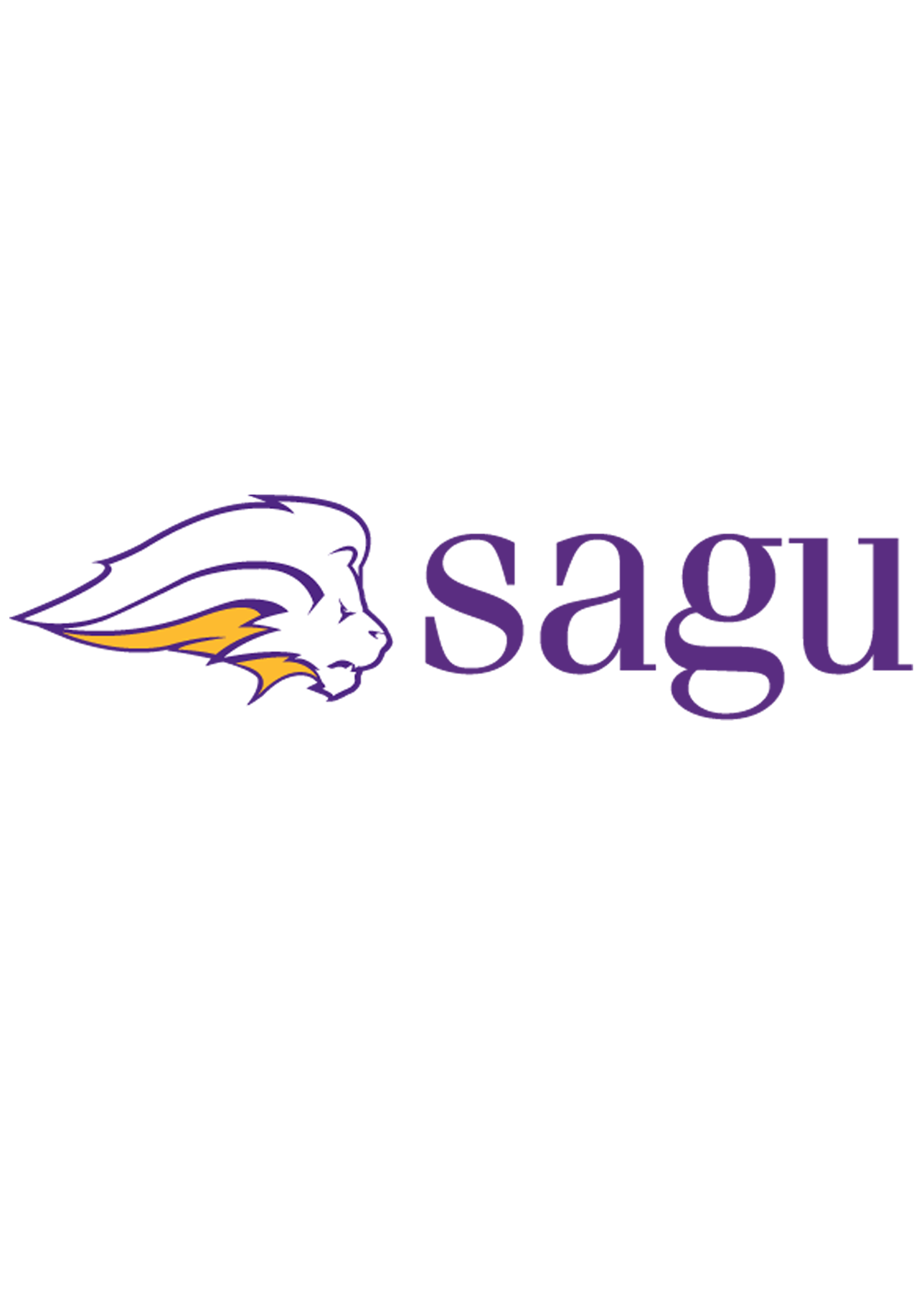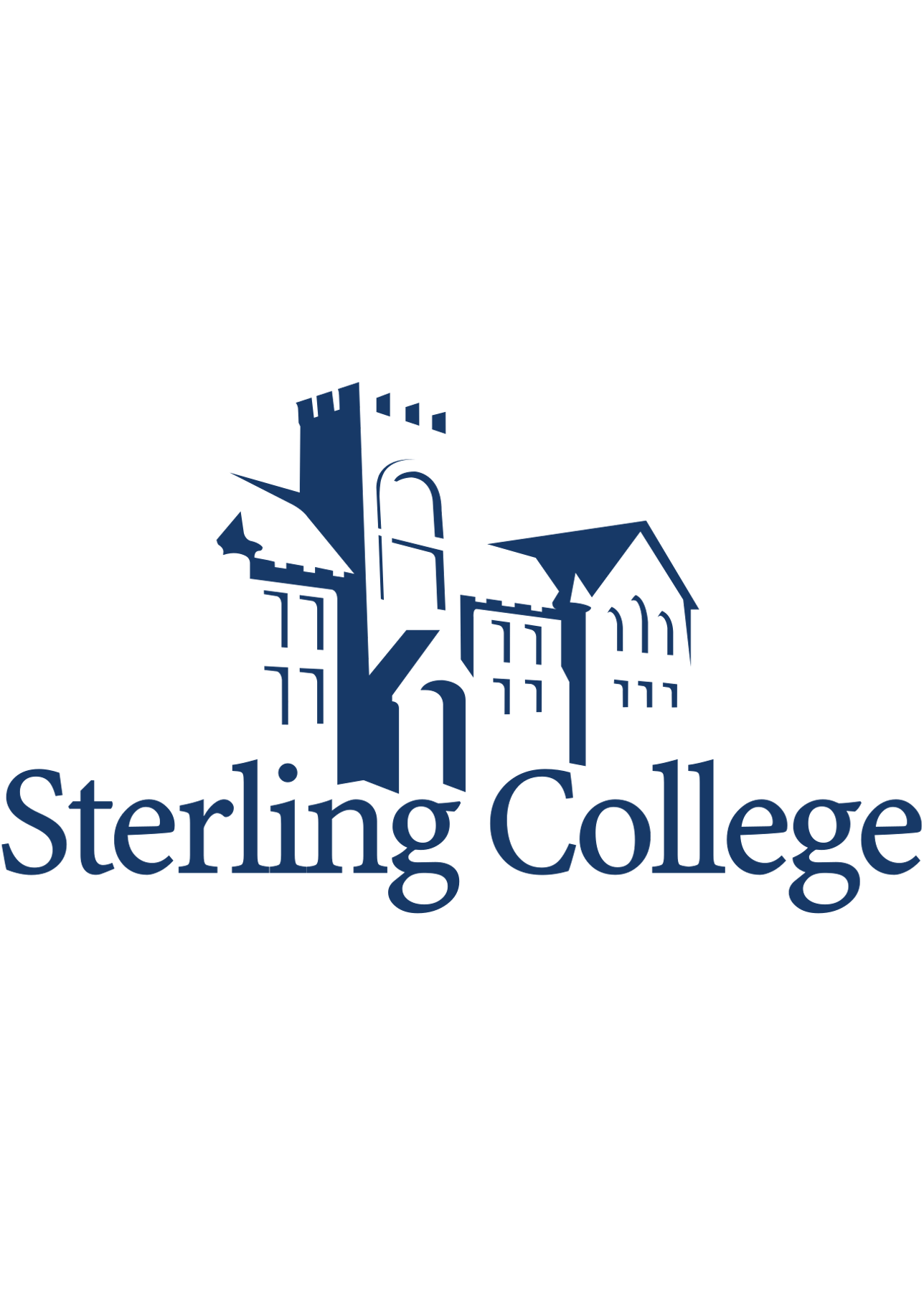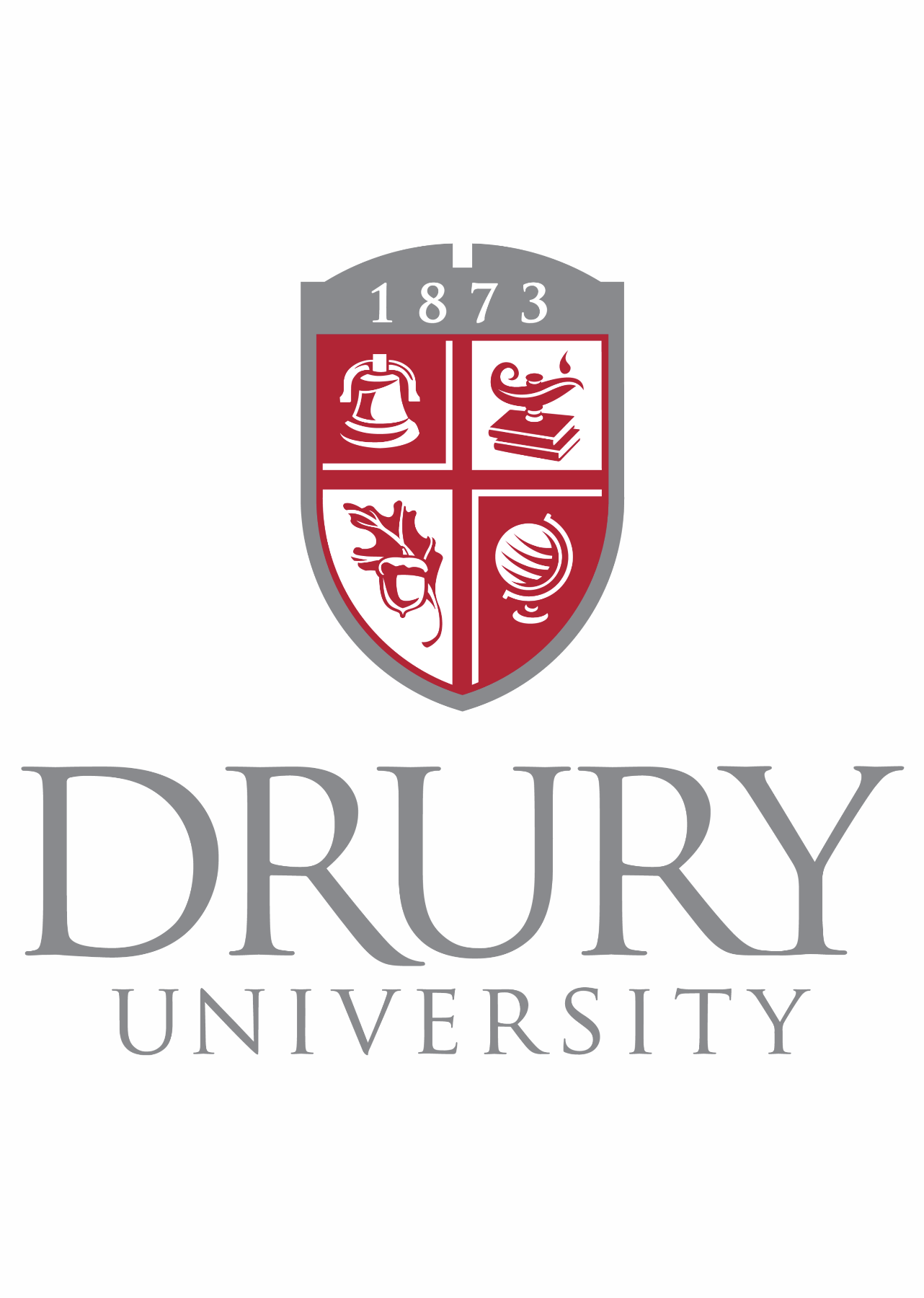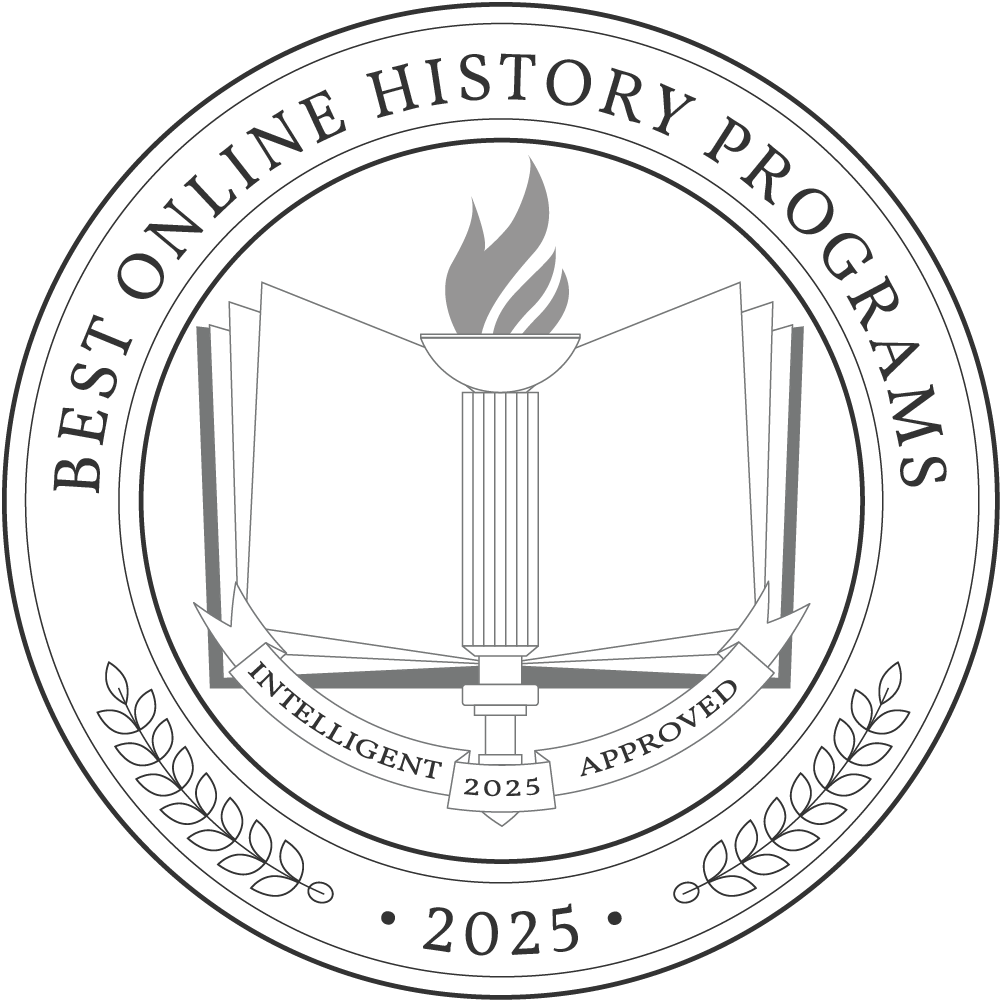An online history degree is an excellent choice for those pursuing careers in education, preparing for law school, or advancing toward academic or historian roles. A bachelor’s degree prepares students for museum technician and conservator jobs, where the median salary is $48,670, while a master’s degree can qualify graduates to work as professional historians, earning a median salary of $72,890. Whether you’re starting your career or building upon undergraduate knowledge, these online history degree programs will help you achieve your goals and make your enthusiasm for history a rewarding career path.
Why Trust Us
The Intelligent.com Higher Education Team is dedicated to providing students with independent, equitable school and program rankings and well-researched resources. Our expert-driven articles cover topics related to online colleges and programs, paying for school, and career outlooks. We use data from the U.S. Department of Education’s College Scorecard, the National Center for Education Statistics, and other reputable educational and professional organizations. Our academic advisory team reviews content and verifies accuracy throughout the year for the most current information. Partnerships do not influence rankings or editorial decisions.
- Analyzed over 2,000 national, accredited, and nonprofit colleges and universities
- 800+ rankings pages are reviewed and updated yearly
- Content is informed by reputable sources, surveys, and interviews with academic advisors and other experts
- Over 100 data points are reviewed for accuracy and quality throughout the year, including sources
How we rank schools
Our list features the best online History degree programs at top colleges nationwide. Each school featured is a nonprofit, accredited institution — either public or private — with a high standard of academic quality for post-secondary institutions.
We evaluated each school’s program on tuition costs, admission, retention and graduation rates, faculty, reputation, and the student resources provided for online students. We collected data from trusted sources like the National Center for Education Statistics, individual school and program websites, school admissions counselors, and other data sources. Then, we calculated the Intelligent Score on a scale of 0 to 100 based on the following criterion:
Academic Quality:
- Admission rate versus enrollment rate
- Retention rate of students who return after year one
- Accreditation status (regional and programmatic)
- Nonprofit status, both private and public institutions
Graduation Rate
- Overall graduation rate
- Total number of currently enrolled students, including diversity metrics
- Student-to-faculty ratio
Cost and ROI
- In-state and out-of-state per-credit tuition rates and fees
- Required credits to graduate
- Earning potential after graduation
- Availability of federal student loans, scholarships, and other financial aid options
Student Resources
- Available student services for online-only and hybrid programs
- On-campus amenities like tutoring centers and the number of libraries
Read more about our ranking methodology.
The Top 63 Online History Degree Programs
FiltersInstitution Type
Status
- Intelligent Score
- Alphabetically By University Name
- Acceptance Rate
- Enrollment
- In-state Graduate Tuition
- Out-of-state Graduate Tuition
- In-state Undergraduate Tuition
- Out-of-state Undergraduate Tuition

University of Wisconsin-Milwaukee
Intelligent Score: 99.67In-state: $9,273
Out-of-state: $37,161
In-state: $10,728
Out-of-state: $10,728
SAT: 1260-1460
ACT: 27-32
$902.52 per credit
Online
Higher Learning Commission
120 credits

Southwestern Assemblies of God University
Intelligent Score: 99.44In-state: $20,496
Out-of-state: $20,496
In-state: $10,710
Out-of-state: $10,710
SAT: 900-1120
ACT: 16-22
$350 per credit
Online
Southern Association of Colleges and Schools Commission on Colleges
30-33 credits

Florida International University
Intelligent Score: 98.21In-state: $4,721
Out-of-state: $16,529
In-state: $8,912
Out-of-state: $8,912
SAT: 1110-1260
ACT: 23-29
In-State: $228.81 per credit
Out-of-State: $345.87 per credit
Online
Southern Association of Colleges and Schools Commission on Colleges
120 credits

University of Louisiana Monroe
Intelligent Score: 97.15In-state: $5,407
Out-of-state: $19,135
In-state: $5,511
Out-of-state: $5,511
SAT: 1000-1210
ACT: 20-26
$400 per credit
Online
Southern Association of Colleges and Schools Commission on Colleges
120 credits

Fort Hays State University
Intelligent Score: 96.89In-state: $4,140
Out-of-state: $14,580
In-state: $3,726
Out-of-state: $3,726
SAT: N/A
ACT: N/A
$287.75 per credit
Online
Higher Learning Commission
33 credits

Sam Houston State University
Intelligent Score: 96.81In-state: $5,856
Out-of-state: $15,672
In-state: $5,765
Out-of-state: $5,765
SAT: 970-1120
ACT: 18-23
$423.50 per credit
Online
Southern Association of Colleges and Schools
120 credits

Western Kentucky University
Intelligent Score: 96.48In-state: $10,802
Out-of-state: $26,496
In-state: $12,140
Out-of-state: $12,140
SAT: 980-1180
ACT: 19-26
$707 per credit
Online
Southern Association of Colleges and Schools Commission on Colleges
36 credits

Slippery Rock University
Intelligent Score: 96.16In-state: $7,716
Out-of-state: $11,574
In-state: $9,288
Out-of-state: $9,288
SAT: 980-1150
ACT: 19-25
In-state: $516 per credit
Out-of-state: $774 per credit
Online
Middle States Commission on Higher Education
30 credits

Nicholls State University
Intelligent Score: 95.18In-state: $4,922
Out-of-state: $6,015
In-state: $5,686
Out-of-state: $5,686
SAT: 990-1170
ACT: 19-24
$275 per credit
Online
Southern Association of Colleges and Schools
120 credits

West Texas A&M University
Intelligent Score: 94.75In-state: $5,748
Out-of-state: $7,195
In-state: $4,968
Out-of-state: $4,968
SAT: 920-1130
ACT: 18-23
$465 per credit
Online
Southern Association of Colleges and Schools Commission on Colleges
120 credits

Holy Apostles College and Seminary
Intelligent Score: 94.59In-state: $25,600
Out-of-state: $25,600
In-state: $18,433
Out-of-state: $18,433
SAT: 1070
ACT: 24
$360 per credit
Online
New England Commission of Higher Education, Inc.
120 credits

Sterling College
Intelligent Score: 93.92In-state: $26,000
Out-of-state: $26,000
In-state: $13,860
Out-of-state: $13,860
SAT: 900-1080
ACT: 18-25
$145 per credit
Online
Higher Learning Commission
45 credits

The Baptist College Of Florida
Intelligent Score: 93.4In-state: $21,232
Out-of-state: $21,232
In-state: $14,850
Out-of-state: $14,850
SAT: 930-1200
ACT: 17-23
$360 per credit
Online
Southern Association of Colleges and Schools Commission on Colleges
120 credits

Drury University
Intelligent Score: 93.39In-state: $29,900
Out-of-state: $29,900
In-state: $8,388
Out-of-state: $8,388
SAT: 1030-1250
ACT: 21-29
$320 per credit
Online
Higher Learning Commission
124 credits

Eastern Oregon University
Intelligent Score: 92.79In-state: $7,830
Out-of-state: $20,520
In-state: $17,550
Out-of-state: $17,550
SAT: N/A
ACT: N/A
$252 per credit
Online
Northwest Commission on Colleges and Universities
180 credits

University of Maryland Global Campus
Intelligent Score: 92.28In-state: $8,824
Out-of-state: $34,936
In-state: $13,158
Out-of-state: $13,158
SAT: 1270-1480
ACT: 30-34
$399.50 per credit
Online, Hybrid
Middle States Commission on Higher Education
120 credits

West Virginia University
Intelligent Score: 91.92In-state: $8,976
Out-of-state: $25,320
In-state: $10,134
Out-of-state: $10,134
SAT: 1030-1230
ACT: 21-27
$482 per credit
Online
Higher Learning Commission
15 credits

University of Central Florida
Intelligent Score: 91.43In-state: $4,478
Out-of-state: $19,810
In-state: $6,916
Out-of-state: $6,916
SAT: 1160-1340
ACT: 25-30
$281.53 per credit
Online
Southern Association of Colleges and Schools Commission on Colleges
120 credits
What You Should Know About an Online History Degree
While some individuals with history degrees go on to work as historians for museums, research organizations, or the government, there are actually multiple career paths available to those who study history. History majors can be creative in their approaches to their careers and look at interdisciplinary job opportunities that incorporate historical research and analysis skills.
Because a history degree program teaches a broad range of transferable skills, including writing, critical thinking, research, and problem-solving, employers in various fields seek out history majors as job candidates. These fields include education, law, communications, journalism, government, and more.
When exploring online programs, it’s important to confirm that the institution is authorized to grant degrees to students in the state where you reside. Check with the National Council for State Authorization Reciprocity Agreements for more information about authorizations for distance education providers. The school may also provide information about its authorization for granting degrees to out-of-state students.
Even when programs are advertised as online, they may have minimal in-person requirements for internships, residencies, or other hands-on learning experiences. Review the program’s curriculum carefully to confirm any in-person obligations, and decide if they will fit into your schedule and lifestyle.
Finding the Right Online Program
Here are some questions to ask when researching online history programs:
- Does this program offer the specialization I want? Many bachelor’s and master’s degree programs in history allow students to focus on the history of a particular geographic region or time period. Specializations can include Middle Eastern history, European history, or military history. Check if the program offers that option if you want to focus on a particular area.
- Does the program have a thesis option? This is a consideration for master’s-level students. If you plan to continue on to earn a doctoral degree in history, completing a thesis as part of your master’s degree may be advantageous or even necessary. You may need to submit an academic writing sample like a thesis as a prerequisite for admission to some doctoral programs. Keep this in mind when selecting and completing a master’s degree program.
Review each program’s admissions requirements and deadlines so that you are prepared for the application process. You can find this information on the program’s website or by contacting their admissions department directly.
Financing your education is another important consideration. Research scholarships, assistantships, loans, and payment plans.
Frequently Asked Questions About Online History Degree Programs
What career opportunities are available with an online history degree?
This degree can provide many different career opportunities, as there is a strong demand for critical thinkers and skilled researchers. Graduates can become museum staff with a bachelor’s degree. A master’s degree expands opportunities, including roles as professional historians or community college professors. The degree also prepares students for law school, offering a solid foundation in research, analysis, and persuasive communication.
Are online history degree programs as credible as on-campus programs?
Online history degree programs are often just as credible as on-campus options, typically offering the same curriculum and faculty. Many respected universities offer online degrees that are indistinguishable from their in-person counterparts. To ensure credibility, you’ll want to double-check that the program is regionally accredited, guaranteeing its quality and recognition by employers and other institutions. All of our recommended programs have this level of accreditation, making them reliable and trustworthy choices for achieving your educational and career goals.
How long does it take to complete an online history degree program?
Earning this degree takes four years for a bachelor’s, assuming you’re studying full-time. Graduate programs vary; a master’s degree often takes one to two years, depending on the program’s structure and pacing. These programs can also differ in credit requirements, usually ranging from 30 to 36 credits, so confirming these details is essential when planning your grad school timeline.
Are there specialization options within online history degree programs?
Many online history degree programs offer specializations to center your education around your interests better. Popular options include American history, ideal for U.S. culture, politics, and historical movements; world history, for students interested in a global perspective on civilizations and international relations; and public history, suited for future archivists, museum professionals, or cultural preservationists. Other programs may focus on periods like medieval or modern history, geared toward enthusiasts of specific eras.
What is the cost of an online history degree?
According to the most recent data from the National Center for Education Statistics, the average annual tuition for an undergraduate degree is $14,688. The average annual tuition for a graduate degree is $20,513.
Costs depend significantly on factors like the type of school and residency status. In-state students at public universities typically pay lower tuition, while out-of-state or private school students often experience higher costs. While this can seem daunting, many schools offer online learners financial aid, helping make these programs more affordable.
Compare School Options
Related Degrees
- Library Science
- Social Work
- Social Studies
- Political Science
- Human Services
- Journalism
- Communications
- Philosophy
- Media Communication
- History

